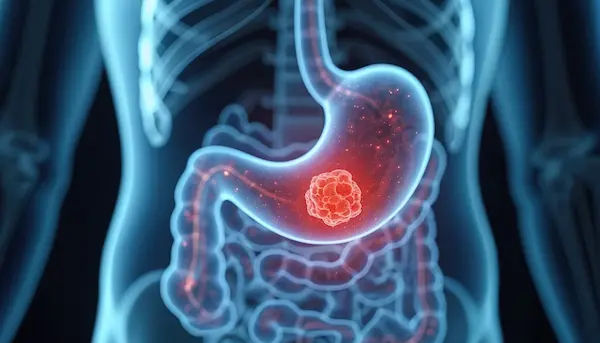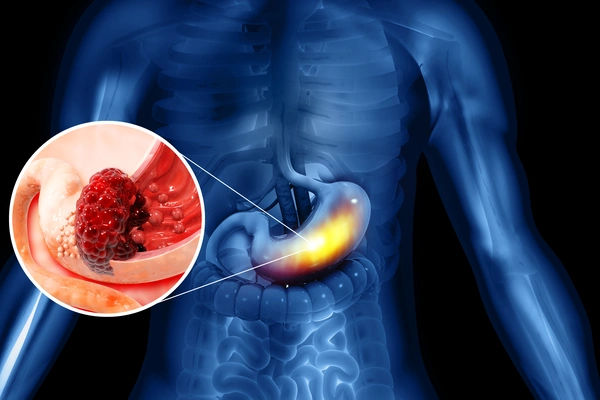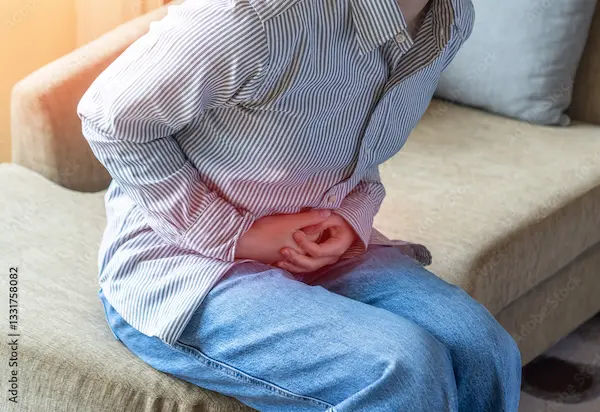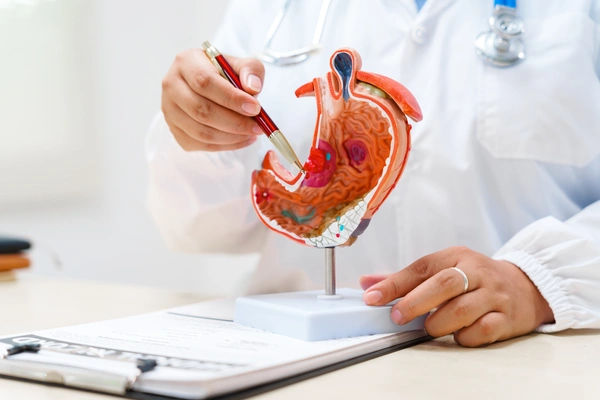Guide to Stomach Cancer Awareness Silent Disease
Discover the signs, risks, diagnosis, and treatments of stomach cancer, a silent disease often mistaken for indigestion. Learn how early detection can save lives.


Introduction
Stomach cancer, or gastric cancer, is often called a "silent disease" for a sinister reason: its early symptoms are easily mistaken for common, less serious digestive issues like heartburn or indigestion. This subtlety allows the disease to progress undetected, making awareness its greatest enemy. By the time more pronounced symptoms appear, the cancer may have advanced. This guide aims to empower you with knowledge, demystifying the signs, risks, and realities of stomach cancer. We'll walk you through everything from understanding the initial whispers of your body to the latest diagnostic and treatment avenues. Knowing what to look for and when to act could make a critical difference in your health journey.
What Exactly is Stomach Cancer?
Stomach cancer begins when healthy cells in the stomach lining undergo genetic mutations, causing them to grow uncontrollably and form a tumour. This process typically happens slowly, over many years. Before a true cancer develops, pre-cancerous changes often occur in the stomach lining. These early changes rarely cause symptoms and therefore often go undetected.
Understanding Your Stomach's Anatomy
Your stomach is a muscular, J-shaped sac located in the upper abdomen. It's part of the digestive system, responsible for breaking down food and passing it to the small intestine. Most stomach cancers (over 90%) originate in the mucosa, the innermost lining of the stomach. This type is called adenocarcinoma. Understanding this helps explain why symptoms often relate to digestion and why an upper endoscopy is the gold standard for diagnosis, as it allows doctors to see this lining directly.
How Stomach Cancer Develops
The development is often linked to chronic irritation and inflammation. A common culprit is a bacterium called Helicobacter pylori (H. pylori), which causes long-term infection and inflammation that can lead to pre-cancerous changes. Other factors, like a diet high in smoked, salted, or pickled foods, can also irritate the stomach lining over time. It's this slow, cumulative damage that underscores the importance of addressing persistent digestive issues.
The Stealthy Symptoms: Listening to Your Body's Whispers
The insidious nature of stomach cancer lies in its vague early warning signs. It's crucial to listen to your body and note if any of these symptoms are persistent and new for you.
Early-Stage Symptoms (Often Mistaken for Common Issues)
- Persistent indigestion or heartburn: A feeling of burning discomfort that doesn't resolve with typical antacids.
- A persistent bloated feeling: Especially after eating.
- Mild nausea: A general sense of queasiness, particularly after meals.
- Loss of appetite: Simply feeling full after eating very little (early satiety).
These signs are so common that they are easily dismissed. The key differentiator is persistence. If these early signs of stomach cancer continue for more than a few weeks without a clear cause, it is a signal to consult a doctor.
Advanced-Stage Symptoms (The Red Flags)
As the cancer grows, symptoms become more severe and specific:
- Unexplained weight loss: A significant and unintentional drop in weight.
- Persistent abdominal pain or discomfort: Often localised to the upper abdomen.
- Vomiting: Sometimes with blood, which may appear red or like coffee grounds.
- Difficulty swallowing (dysphagia): A feeling that food is getting stuck in the throat or chest.
- Fatigue: Often related to anaemia from slow bleeding of the tumour.
- Black, tarry stools (melaena): A sign of bleeding in the digestive tract.
Who is at Risk? Understanding the Factors
While anyone can develop stomach cancer, certain factors significantly increase the risk. These are divided into lifestyle and genetic/medical categories.
Lifestyle and Environmental Risk Factors
- Diet: A diet high in salty, smoked, and processed foods (like cured meats) and low in fresh fruits and vegetables is a major risk.
- Smoking: Smokers are at a much higher risk than non-smokers.
- Obesity: Being overweight is linked to a higher risk of cancer in the upper part of the stomach.
- Occupational exposure: Working in coal, metal, or rubber industries may increase risk.
Medical and Genetic Risk Factors
- H. pylori infection: This is the strongest known risk factor, causing chronic inflammation.
- Family history: Having a first-degree relative (parent, sibling, child) with stomach cancer increases your risk, pointing to potential hereditary factors.
- Certain health conditions: Pernicious anaemia, chronic atrophic gastritis, and stomach polyps.
- Age and gender: Risk increases significantly after age 50, and men are more likely to develop it than women.
How is Stomach Cancer Diagnosed?
If symptoms persist beyond two weeks, a doctor will begin a diagnostic process. If your condition does not improve after trying simple methods, book a physical visit to a doctor with Apollo24|7 for a thorough evaluation.
The Initial Consultation and Physical Exam
The process starts with a detailed discussion of your symptoms, medical history, family history, and risk factors. The doctor may perform a physical exam to check for abdominal tenderness or swelling.
Consult an Oncologist for Personalised Advice
Key Diagnostic Tests
Upper Endoscopy (EGD) and Biopsy
This is the most important test. A thin, flexible tube with a camera (endoscope) is passed down your throat to examine your oesophagus, stomach, and the first part of your small intestine. If any abnormal areas are seen, the doctor can take small tissue samples (biopsy) to be analysed under a microscope for cancer cells.
Imaging Tests: CT, PET, and Endoscopic Ultrasound
- CT scan: Provides detailed cross-sectional images of your body to see if the cancer has spread.
- PET scan: Often used in conjunction with a CT scan (PET-CT) to detect metastatic cancer.
- Endoscopic ultrasound (EUS): An ultrasound probe on the end of an endoscope gets very close to the stomach wall, providing highly detailed images of how deeply the cancer has invaded.
For high-risk individuals, Apollo24|7 offers convenient home collection for tests like the H. pylori breath test or blood tests to check for anaemia, which can be an initial screening step.
Staging Stomach Cancer: What Does It Mean?
Once diagnosed, the cancer is staged to determine its extent and guide treatment. Staging is based on the TNM system: Tumour size/invasion (T), spread to lymph nodes (N), and metastasis to other organs (M). This combines into an overall stage from 0 (very early, only in the inner lining) to IV (advanced, spread to distant organs). Stomach cancer survival rate is highly dependent on the stage at diagnosis, emphasising why early detection is so critical.
Treatment Options: A Multidisciplinary Approach
Treatment is tailored to the individual, based on the cancer's stage, location, and the patient's overall health. A team of specialists (surgeons, medical oncologists, radiation oncologists) will work together.
Surgery (Gastrectomy)
The primary treatment for early-stage cancer is surgery to remove the part (subtotal gastrectomy) or all (total gastrectomy) of the stomach, along with nearby lymph nodes. The goal is to remove all cancerous tissue.
Chemotherapy and Radiation Therapy
- Chemotherapy: Uses powerful drugs to kill cancer cells. It can be given before surgery (neoadjuvant) to shrink a tumour, or after (adjuvant) to kill any remaining cells.
- Radiation therapy: Uses high-energy beams to destroy cancer cells. It's often used in combination with chemo,
especially if surgery isn't a full option.
Targeted Therapy and Immunotherapy
These newer treatment options for gastric cancer represent a more personalised approach:
Targeted therapy: Drugs that specifically target proteins or genes that help cancer cells grow (e.g., HER2-targeted drugs for HER2-positive cancers).
Immunotherapy: Drugs that help your own immune system recognise and attack cancer cells. They have become a key option for some advanced cancers.
Life After Diagnosis: Nutrition and Recovery
A gastrectomy recovery diet is a major part of life after treatment. Since the stomach's function is altered, patients need to eat smaller, more frequent meals, focus on high-protein, high-calorie foods, and may need nutritional supplements. A registered dietitian is an essential part of the care team.
Can Stomach Cancer Be Prevented?
While not all cases are preventable, you can significantly reduce your risk.
Diet and Lifestyle Modifications
- Eat a diet rich in fruits and vegetables. Aim for a variety of colours.
- Reduce your intake of salty and smoked foods.
- Stop smoking.
- Maintain a healthy weight.
- Treat H. pylori infections if diagnosed.
The Role of Screening for High-Risk Individuals
People with a strong family history or known genetic syndromes may benefit from regular screening with endoscopy to catch pre-cancerous changes or cancer at its earliest, most treatable stage.
Conclusion
Stomach cancer's reputation as a silent disease makes proactive awareness and education our most powerful tools. By understanding the subtle whispers of your body, recognising the risk factors, and knowing when to seek professional help, you move from a place of fear to one of empowerment. The landscape of stomach cancer treatment is continually evolving, with targeted therapies and immunotherapies offering new hope. Remember, persistent digestive issues are not something to "just live with." If you have ongoing concerns, take the next step. Consult a doctor online with Apollo24|7 for a preliminary discussion or to book an in-person appointment for a thorough evaluation. Your vigilance could be the key to early detection and successful treatment.
Consult an Oncologist for Personalised Advice
Consult an Oncologist for Personalised Advice

Dr. Sanchayan Mandal
Medical Oncologist
17 Years • MBBS, DrNB( MEDICAL ONCOLOGY), DNB (RADIOTHERAPY),ECMO. PDCR. ASCO
Kolkata
MCR SUPER SPECIALITY POLY CLINIC & PATHOLOGY, Kolkata

Dr Gowshikk Rajkumar
Oncologist
10 Years • MBBS, DMRT, DNB in Radiation oncology
Bengaluru
Apollo Clinic, JP nagar, Bengaluru
Dr. B Shravanthi Reddy
Radiation Specialist Oncologist
8 Years • MBBS, DNB(Radiation Oncology)
Manikonda Jagir
Apollo Clinic, Manikonda, Manikonda Jagir
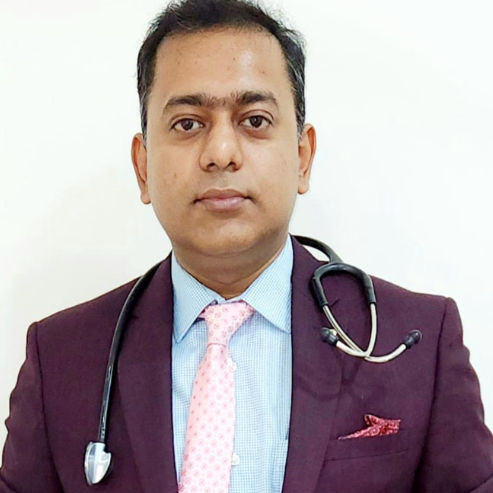
Dr.sanchayan Mandal
Medical Oncologist
17 Years • MBBS, DrNB( MEDICAL ONCOLOGY), DNB (RADIOTHERAPY),ECMO. PDCR. ASCO
Kolkata
Dr. Sanchayan Mandal Oncology Clinic, Kolkata
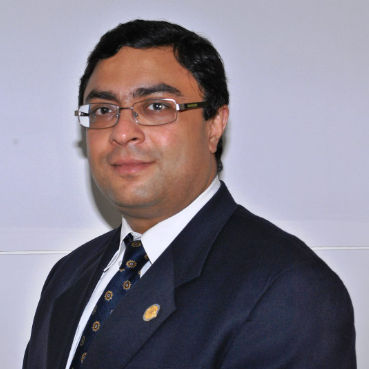
Dr Shaikat Gupta Director Surgical Onco
Surgical Oncologist
35 Years • MBBS (University Gold Medalist), MS, FRCSEd
Kolkata
Apollo Multispeciality Hospitals , Kolkata, Kolkata
(250+ Patients)
Consult an Oncologist for Personalised Advice

Dr. Sanchayan Mandal
Medical Oncologist
17 Years • MBBS, DrNB( MEDICAL ONCOLOGY), DNB (RADIOTHERAPY),ECMO. PDCR. ASCO
Kolkata
MCR SUPER SPECIALITY POLY CLINIC & PATHOLOGY, Kolkata

Dr Gowshikk Rajkumar
Oncologist
10 Years • MBBS, DMRT, DNB in Radiation oncology
Bengaluru
Apollo Clinic, JP nagar, Bengaluru
Dr. B Shravanthi Reddy
Radiation Specialist Oncologist
8 Years • MBBS, DNB(Radiation Oncology)
Manikonda Jagir
Apollo Clinic, Manikonda, Manikonda Jagir

Dr.sanchayan Mandal
Medical Oncologist
17 Years • MBBS, DrNB( MEDICAL ONCOLOGY), DNB (RADIOTHERAPY),ECMO. PDCR. ASCO
Kolkata
Dr. Sanchayan Mandal Oncology Clinic, Kolkata

Dr Shaikat Gupta Director Surgical Onco
Surgical Oncologist
35 Years • MBBS (University Gold Medalist), MS, FRCSEd
Kolkata
Apollo Multispeciality Hospitals , Kolkata, Kolkata
(250+ Patients)
More articles from Stomach Cancer
Frequently Asked Questions
1. What is the main cause of stomach cancer?
There is no single cause, but it's strongly linked to chronic infection with H. pylori bacteria and long-term inflammation of the stomach. Lifestyle factors like a diet high in smoked and salted foods and smoking also play a significant role.
2. Is stomach cancer curable?
Yes, stomach cancer is most curable when found at an early, localised stage. The five-year survival rate for very early-stage cancer is quite high. Even for advanced stages, treatment can often control the cancer for a significant time and manage symptoms.
3. How can you test for stomach cancer at home?
There is no reliable way to test for stomach cancer at home. The diagnosis requires medical procedures like an endoscopy and biopsy. However, being aware of the early signs of stomach cancer like persistent indigestion and reporting them to a doctor is the most important action you can take.
4. What is the difference between stomach cancer and an ulcer?
Both can cause similar symptoms like pain and nausea. However, ulcer pain often comes and goes and may be temporarily relieved by food or antacids. Stomach cancer symptoms are more persistent and progressive, often accompanied by unintended weight loss and fatigue. Only a doctor can definitively differentiate between them through testing.
5. Does acid reflux cause stomach cancer?
Regular acid reflux (GERD) can increase the risk of a type of cancer called oesophageal adenocarcinoma. It is not a direct common cause of stomach (gastric) cancer. However, any persistent upper GI symptom should be evaluated by a doctor.
